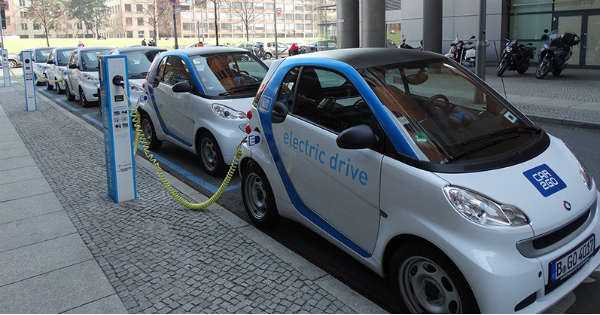Given the hype surrounding electric-powered vehicles over the past few decades, you could be forgiven for wondering what`s taking so long. Why are we still using unleaded and diesel, instead of the more efficient electric alternatives? Let`s take a look at a few of the stumbling blocks which, despite the industry`s best efforts, have yet to be overcome with the electric vehicles.

Range
Electric cars are still limited in terms of how far they can drive on a single charge. Batteries are always falling in size, which means that more capacity can be crammed beneath a given vehicle, and thus range can be extended. However, the majority of production electric cars are unable to travel far beyond 100 miles on a single charge.
This might be extended in the future, both by increasing the capacity of the battery, and by increasing the efficiency of the car`s internal components. This might mean improvements to the motor itself, as well as the AC-DC and DC-DC converters inside.
Infrastructure
The range limitations combine with the fact that charging an electric car at a practical speed requires serious current. A home station will provide 2.3kw from a standard wall socket, and around 7.2kw from a specialised charging point. This is enough to charge your car – albeit very slowly. They`re built to be plugged in overnight ready for the following day, and thus won`t replace a two-minute stop at a service station just yet.
This output rises to 50kw in the UK`s current `fast-charging` stations, which are dotted around the country. Things are set to improve still further with the introduction of 350kw stations, which are set to be introduced as part of a joint venture between a number of prestigious manufacturers, including Audi, Porsche, Ford and BMW. Even then, however, charging points will be outnumbered by filling stations by several orders of magnitude – and you`ll still need to plan your routes in advance when embarking on long trips into unfamiliar territory.
Cost
The recent proliferation of electric cars has mostly occurred at the top end of the market. And so, for all of the long-term savings offered by making the switch, motorists on a budget largely have no choice but to stick to traditional gas-guzzlers.
Hans Dieter Pötsch, Chairman of Volkswagen`s supervisory board, addressed this challenge explicitly in January, claiming that smaller cars are more difficult to electrify, which is why most of the innovation has occurred in SUVs and premium sports models. Batteries constitute a greater portion of a smaller car`s overall weight, and thus for smaller cars to be viable, the battery costs need to be a great deal lower.
This represents an unfortunate paradox, given that the motorists who`d feel the greatest benefit from switching to electric would be city drivers with short daily commutes – the very drivers, in other words, who`d be most likely to prefer a smaller car.

